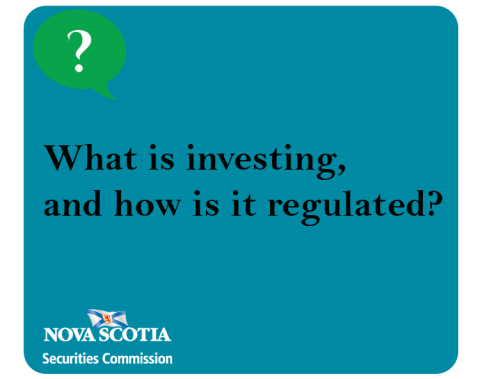Submitted by harrisdc on

The dictionary definition of investing is… “expend money with the expectation of achieving a profit or material result by putting it into financial schemes, shares, or property, or by using it to develop a commercial venture.” That’s quite a mouthful. No one talks like that though, so let’s make things a little simpler.
Investing, in the simplest of terms, is making your money work for you to grow and help you meet your long-term financial goals. Through research and/or advisement, investing can include putting your money into stocks, bonds, mutual funds, or a business for example. We’ll examine these different investment vehicles more closely in futures posts. By placing your money in one of these investment vehicles you are hoping for your money to grow over time.
However, investing is not a get-rich-quick scheme. It takes time and patience to make your money grow and reach your financial goals. It is also not gambling. Gambling is putting your money on a random undetermined outcome and hoping for the best. Investing does have risk involved and does not guarantee profit, but unlike gambling it does not rest solely on chance.
Now that we’ve explained investing let’s talk about regulation. The act of investing by an investor alone is not regulated. For example, if Mr. X wants to invest in Company Y, Mr. X is not subject to any rules or regulations. However, Company Y, or a broker that facilitates the investment, may be subject to certain legal requirements depending on how Mr. X’s investment is made.
Activities by persons or companies that involve the issuance, offer, sale, or trading of “securities” or “derivatives”, or that provide advice regarding “securities” or “derivatives”, is regulated in Nova Scotia by the Nova Scotia Securities Commission.
Returning to our example with Mr. X and Company Y. If Company Y issues shares directly to Mr. X, then they are required to follow securities laws. If Mr. X consults an adviser regarding buying shares in Company Y and buys these shares through a broker, both the adviser and the broker are required to follow securities laws.
The securities commission may not regulate investors, but an important part of our mandate is to protect investors from practices and activities that tend to undermine investor confidence in the fairness and efficiency of the capital markets. Protective measures are in place to try and provide added protection to investor.
One of these measures is the requirement that all that all persons or companies engaging in the business of trading in or advising on securities or derivatives in Nova Scotia be registered. To be registered, persons or companies must satisfy certain conditions, including educational requirements.
Another investor protection measure is the requirement that companies that distribute their securities directly to investors deliver a prospectus (disclosure document) containing detailed information about the company and the securities to be sold, so that an investor can make an informed decision about their investment.
These measures still require the participation of the investor to be fully effective. NSSC recommends that investors do their due diligence before investing, including checking the registration of any advisers or dealers they work with.
